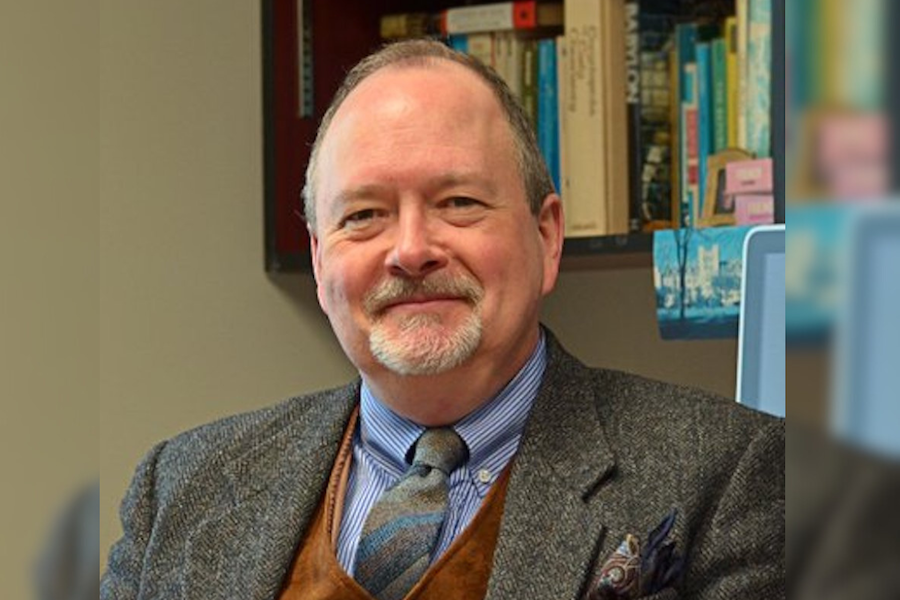In 2015, John G. Stackhouse Jr. left Regent College, a well-known graduate school of theology in Vancouver where he was a professor of theology and culture, for a new job at Crandall University in Moncton, N.B., where he became a professor of religion.
For some, Stackhouse’s departure from Regent was a mystery; why would a prominent evangelical scholar and the author of 12 books leave for a little-known school on the east coast?
You may unsubscribe from any of our newsletters at any time.
The CBC reported that Stackhouse was repeatedly the subject of sexual harassment allegations. But the reason for his departure from Regent is hidden within a non-disclosure agreement (NDA) between him and the college.
In November 2023, after female students at Crandall complained about his behaviour through a public Instagram account called DoBetterCrandall, the college launched a third-party investigation and Stackhouse’s employment was terminated. Stackhouse disputes the investigation and is suing Crandall for wrongful dismissal.
In its report, the third-party investigation quoted an anonymous tip on the Instagram account that said there were “many stories” about Stackhouse’s alleged inappropriate behaviour at Regent. When investigators asked Stackhouse about the allegations, and why he didn’t tell Crandall about them, Stackhouse is quoted in the report as saying he was under a legal obligation demanded by Regent to “avoid any specific reference to the terms of my leaving and I honoured that obligation.”
This story struck a nerve with me – and not only because I co-run an international campaign called Can’t Buy My Silence to stop the misuse of NDAs to cover up misconduct and “pass the trash” between workplaces with Zelda Perkins, former assistant to Harvey Weinstein. It also hit home because I was sexually abused by my evangelical Anglican church minister in the United Kingdom when I was 16 and 17, after I went to him for help because I was struggling with doubts about my faith. The minister said his actions were “God’s will” and would help clear up my doubts. I had no route to complain or fight back. While the silence and secrecy in which I wrapped my experience was not unusual then, the hard truth is that it is still not unusual now.
Speaking out
Almost 50 years later, I have had plenty of time to reflect on this experience. After much consideration and years of therapy, I went public with my story in 2014 and commenced a civil lawsuit for sexual assault against the UK Anglican Church and the minister (who was still practising at the time, in Australia). I thought that as a law professor I had some responsibility to speak out and do something about this to give others, perhaps, some hope.
I quickly learned that NDAs were a feature of almost every settlement agreement with the Anglican church. Initially designed to protect trade secrets in the tech industry, NDAs in sexual abuse cases silence survivors and allow abusers – protected by anonymity – to continue abusive behaviour. Having sent a message loud and clear from the outset of the civil suit that I would not sign an NDA, it was never raised again.
More on Broadview:
- United Church chooses seven principles to guide its justice work
- More young girls are fearing for their safety as they engage in activism
- After more than 30 years, this clergy abuse survivor is finally being heard
The Ecclesiastical Insurance Group, representing the Anglican Church UK, thought at first I could be bought off. (Ecclesiastical is an international company that also insures the Anglican Church of Canada.) But my lawyer, David Greenwood, and I had a bigger ask: for the Anglican Church to overhaul its process for sexual assault claimants. Our proposed changes included: restrictions on NDAs; no restrictions on the statute of limitations; providing immediate counselling for survivors; moving more quickly and directly to negotiating an outcome; and not banning complainants from attending church services.
After many delaying tactics and pointed remarks that this was an “unusual” choice for a settlement, the case was settled in 2019, and most of our proposed changes were accepted. These “guiding principles” were expanded in 2022 following the recommendations of the UK Truth Project’s Independent Inquiry into Child Sexual Abuse. Ecclesiastical now boasts on its website that “we were the first insurer to publish Guiding Principles for the handling of Physical and Sexual Abuse claims, and we continue to learn and improve our ways of working.”
The minister was convicted of indecent assault in 2020 and sentenced to eight years in prison.
Real change
Does a better process for reporting abuse mean it won’t happen anymore? No. Despite important institutional reforms and all the efforts of inquiries like the Truth Project, past mistakes continue to be repeated and young people still aren’t safe in churches. What can churches and schools – and individuals – do?
The first is not to assume offenders are always safe if they are repentant. It is commonplace for an abuser to say that they have “reformed” and will never do it again; apparently my own abuser had made this statement numerous times in ministry retreats before I knew him. Research demonstrates the serial nature of these crimes, with multiple assaults committed by a very small number of abusers. Forgiveness is important for Christians, but so is protecting young people from potential serial offenders.
Christian institutions and individuals must also recognize the “false reporting” myth. This doesn’t mean automatically believing every allegation but understanding that less than five percent of reports to police do not meet an evidentiary standard, not that they didn’t happen. Furthermore, only an estimated 10 percent of the assaults and harassment incidents that take place are ever reported to any authority.
In rigid hierarchical institutions like churches, where leaders are revered and sometimes seen as God-like, and on university campuses, where there is a culture of deference to professors, the very idea of reporting sexual misconduct is terrifying to victims. Like me, they feel they won’t be believed, and this further compounds a sense of shame that never goes away. I give credit to the young women at Regent College and at Crandall University who reported John G. Stackhouse Jr.’s behaviour, which was a very risky and brave decision.
All institutions need to find a way to normalize the reporting of abusive behaviour by senior figures who are misusing positions of power. This doesn’t just mean creating a complaints process. Thousands of great complaints processes exist but are rarely used. We need open discussions about sexual misconduct – not forcing people to disclose but making it clear that if they choose to do so they will be treated with respect and provided with support, and, where necessary, with legal support.
The expression “culture change” is often bandied around. It means more than changing policies and procedures. It requires authenticity and a genuine determination to reach out to members of any one school or church, as well as taking steps to minimize the many opportunities offered by both churches and universities for powerful predators to meet privately with congregants and students, or even publicly but without other church leaders or faculty. Forget cries of “academic freedom” in this context. The needs of victims must trump the needs of institutions.
Finally, we need to listen to our instincts. When we think we see grooming or feel that we are being groomed, for example, rather than telling ourselves “He would never do that,” speak out about it. As we know from the case of Prof. John Stackhouse Jr., found by a third-party investigator to have abused his authority and sexually harassed students at Crandall, brave victims can make a difference. An NDA shouldn’t protect him.
Resources
If you are feeling uneasy, uncomfortable, embarrassed or offended – these are a few warning signs that might point to sexual harassment. It can take the form of comments, behaviour, jokes, threats, messages, discriminatory action, and more. Defined as any unwelcome behaviour, sexual in nature, that affects you negatively, sexual harassment is against the law in Canada.
For more information, check out:
Canadian Mental Health Association
Hope for Wellness Hotline: 1-855-242-3310
***
Dr. Julie Macfarlane is Emeritus Distinguished Professor of Law at the University of Windsor, a Member of the Order of Canada and the author of Going Public: A Survivor’s Journey from Grief to Action (Between the Lines Press, 2020).
This article is a collaboration between two faith-based publications, Christian Courier and Broadview, who are publishing simultaneously.














